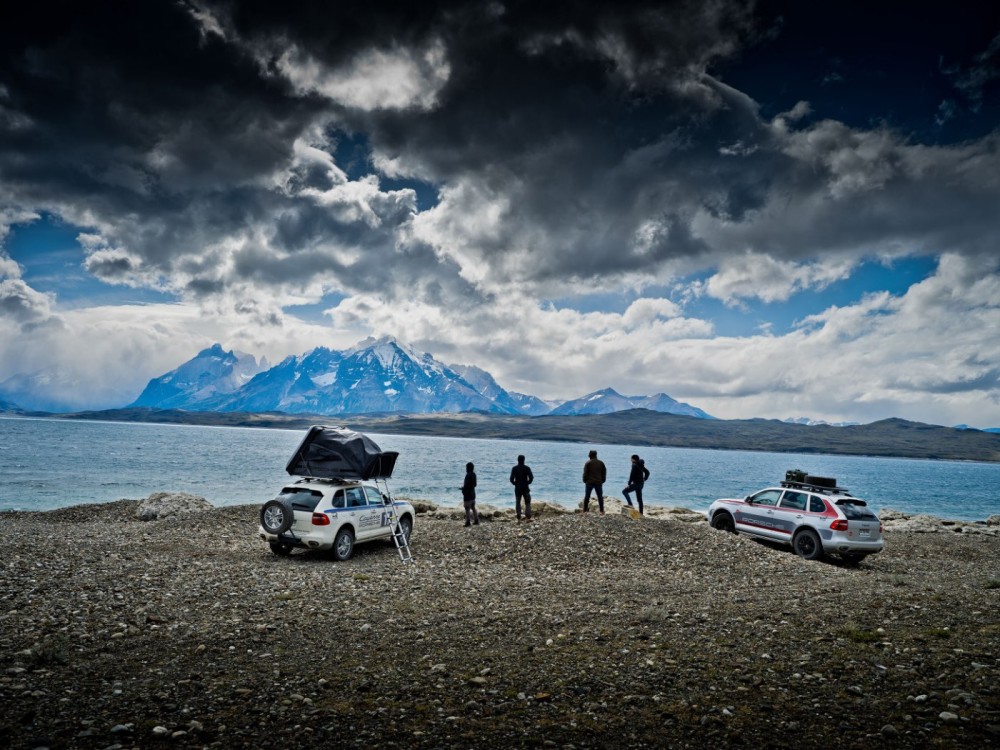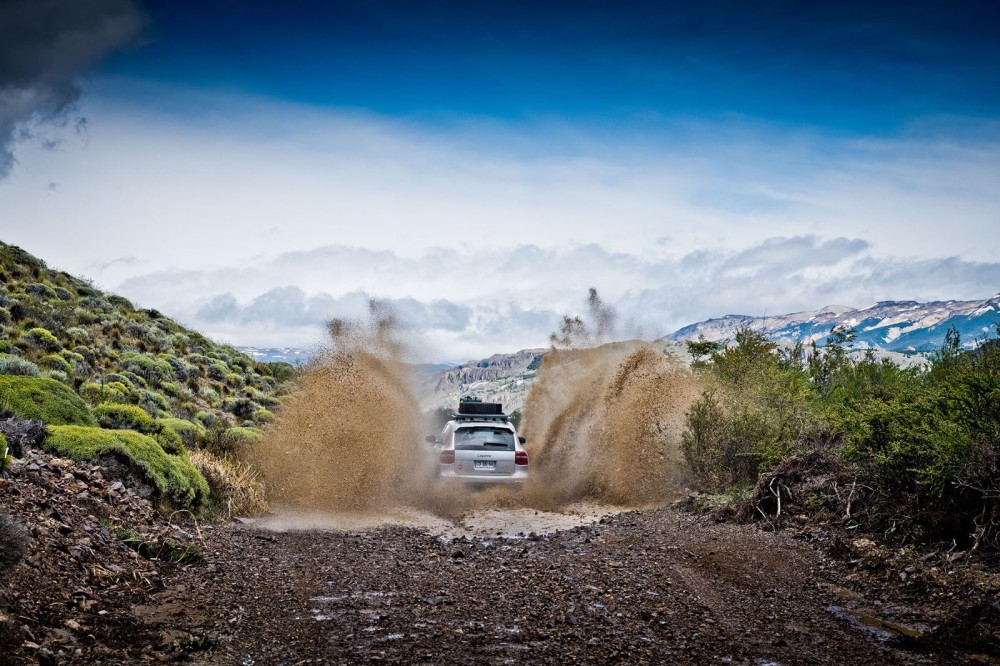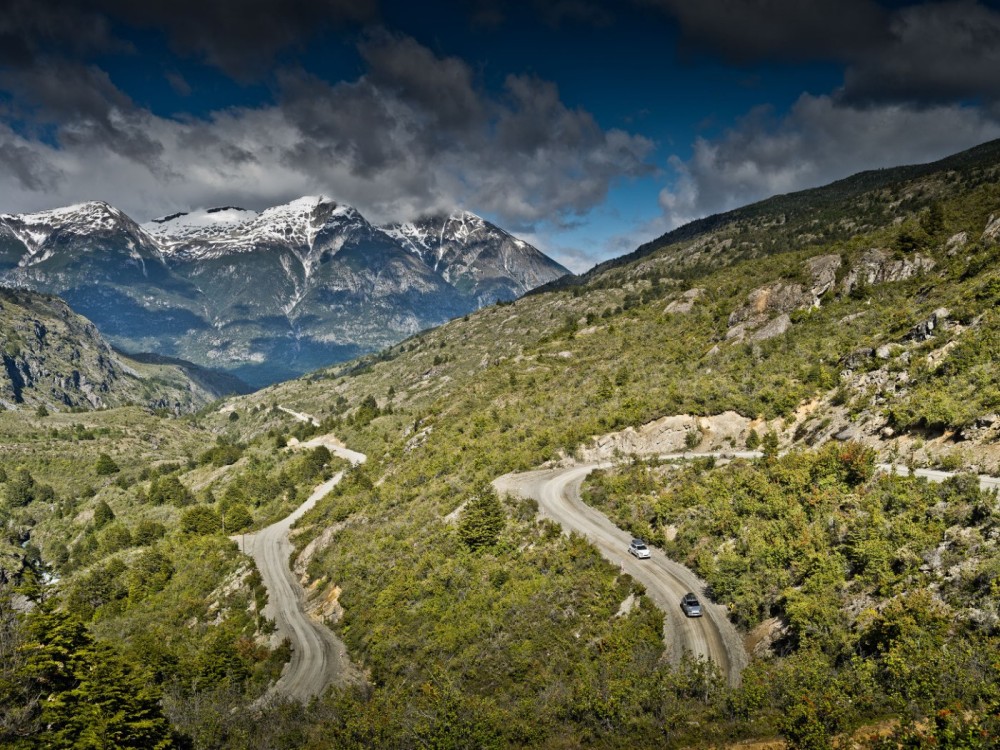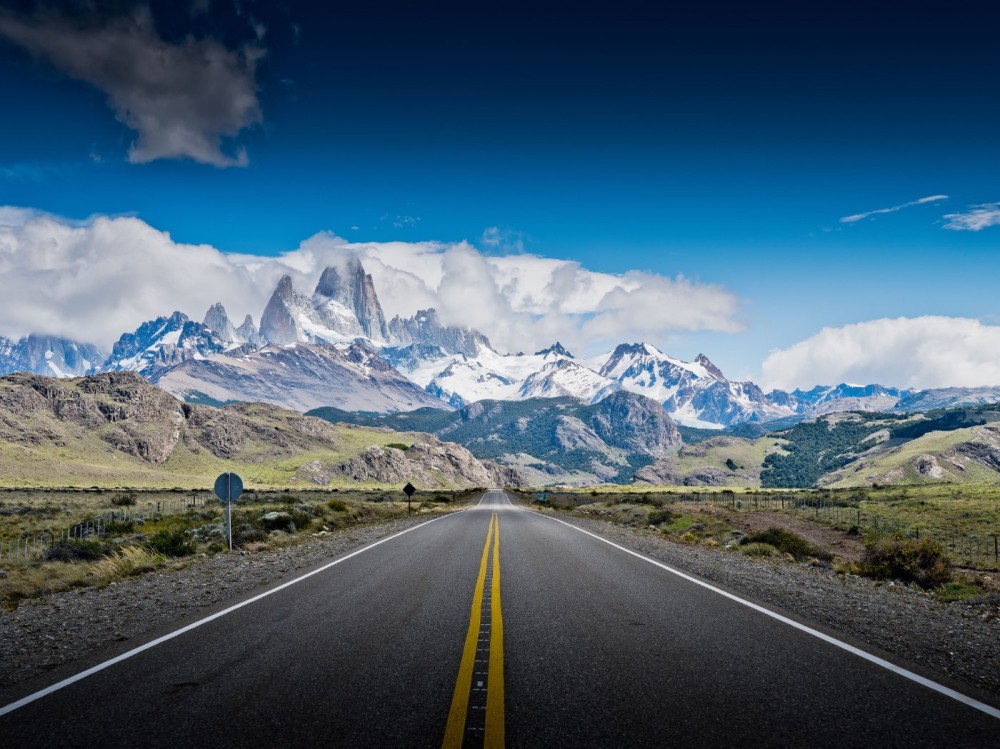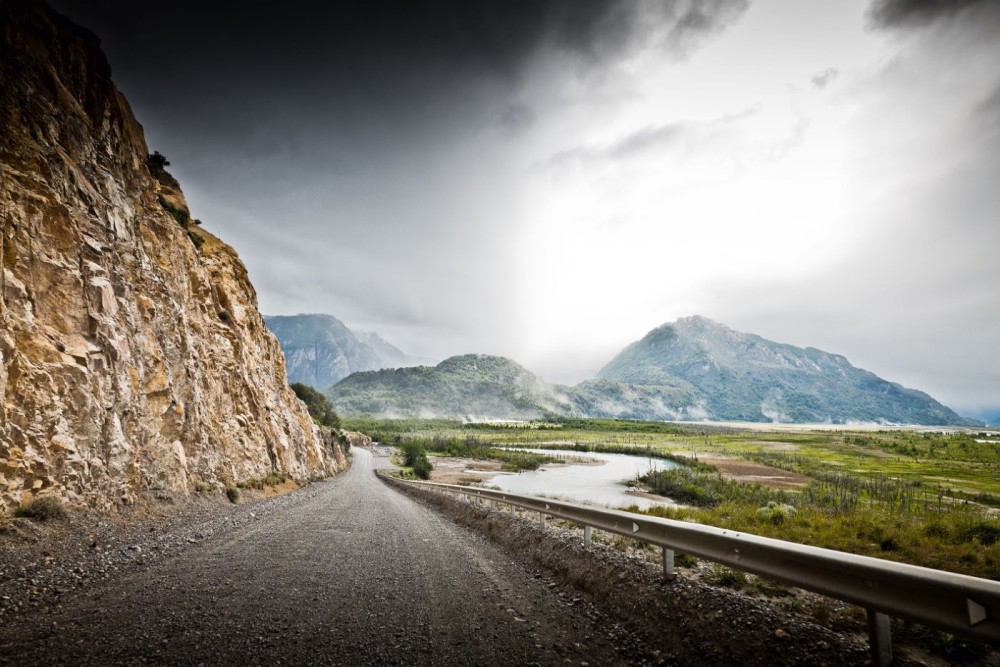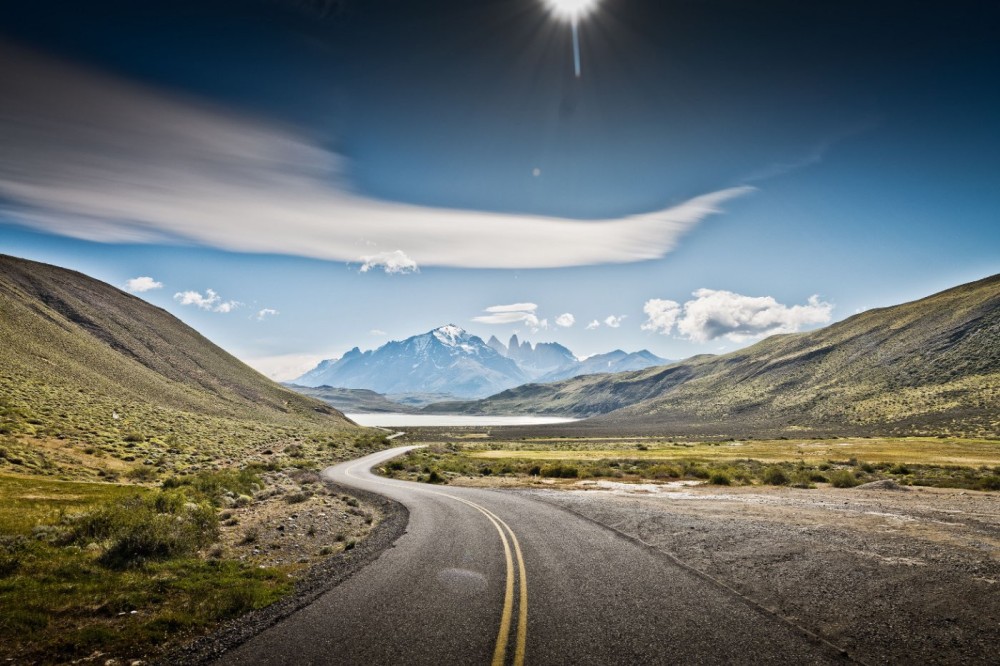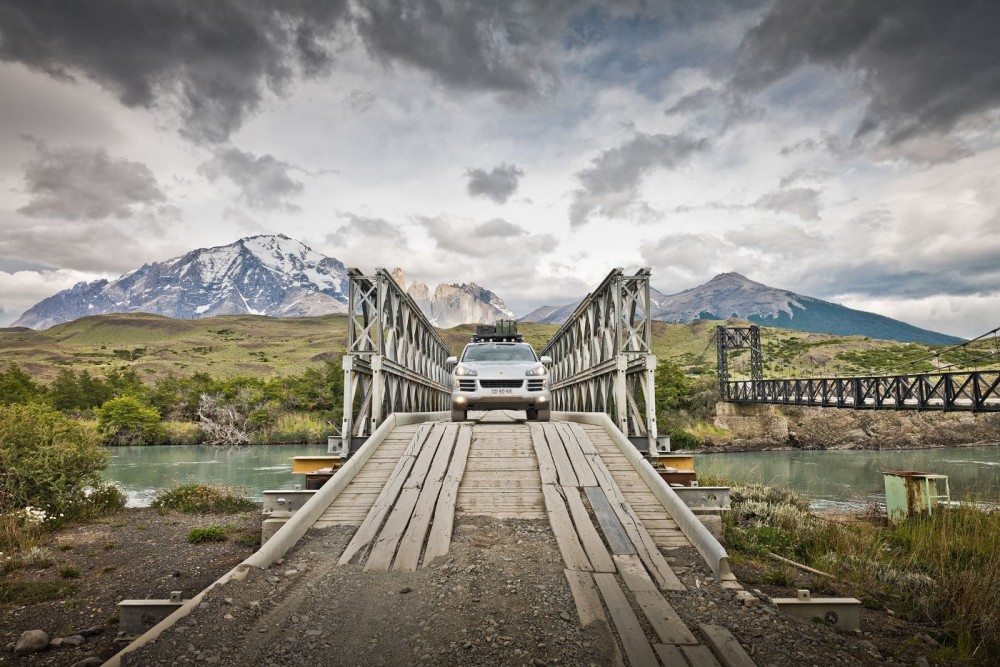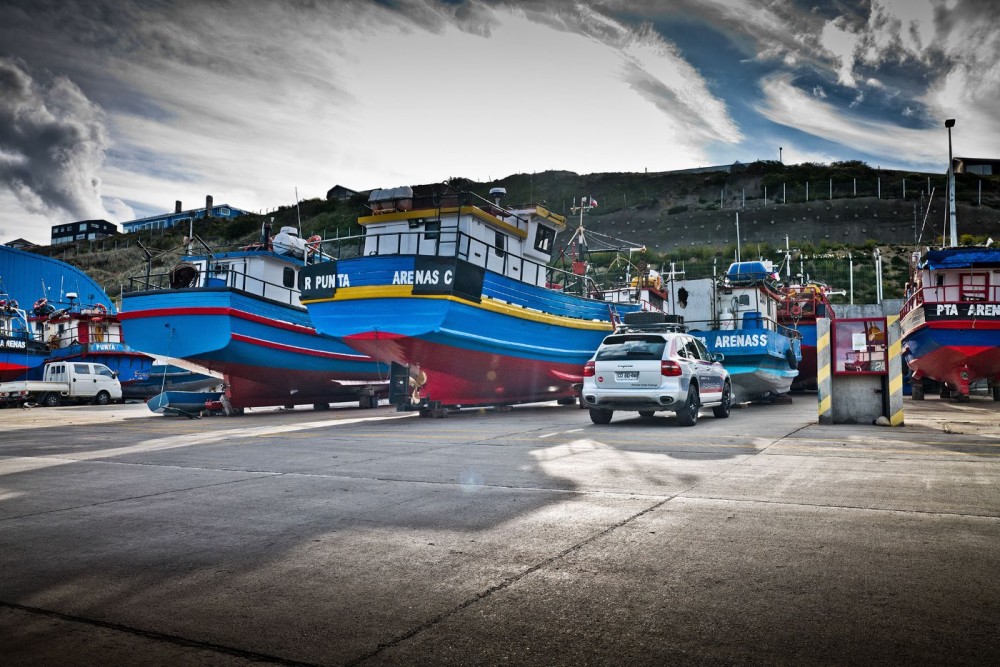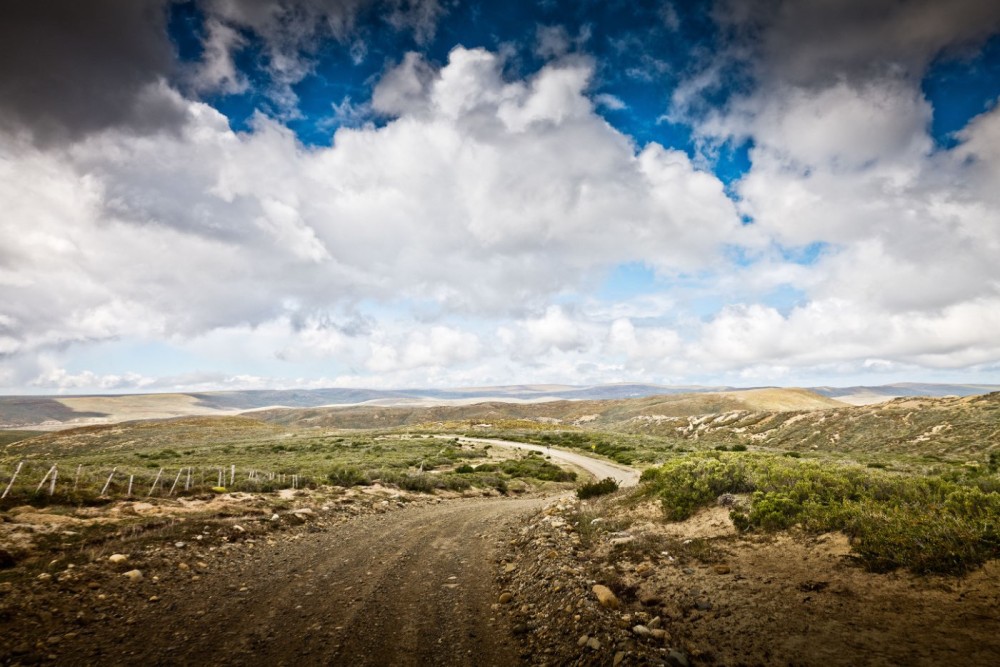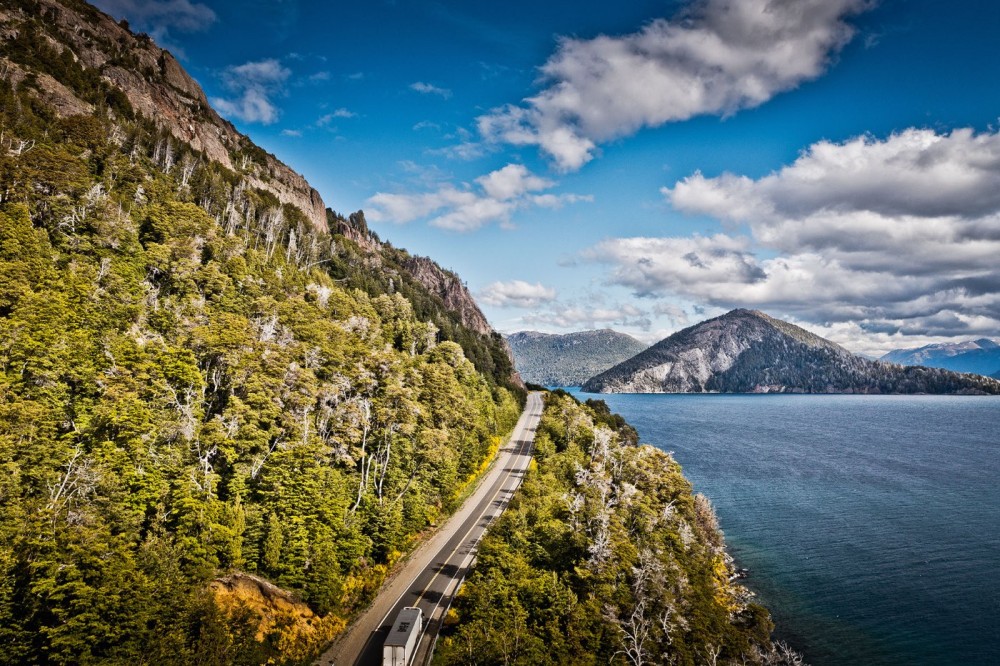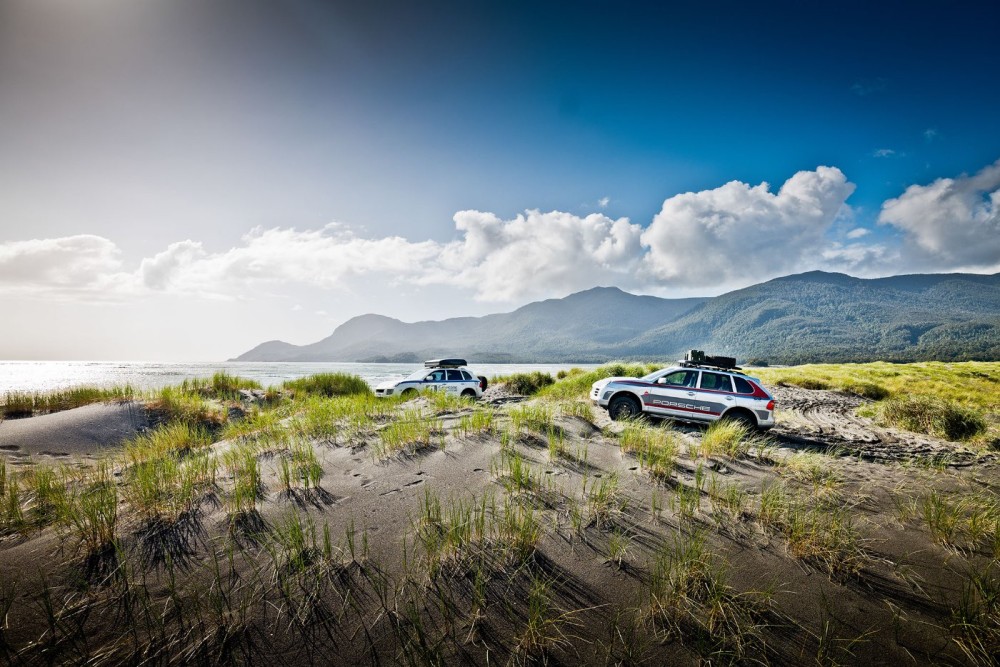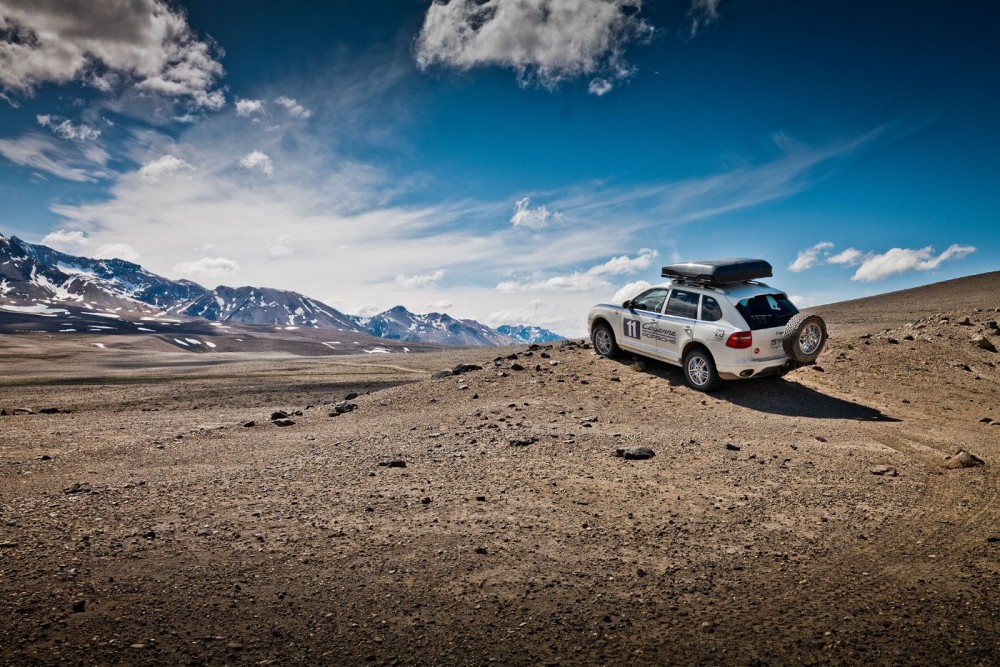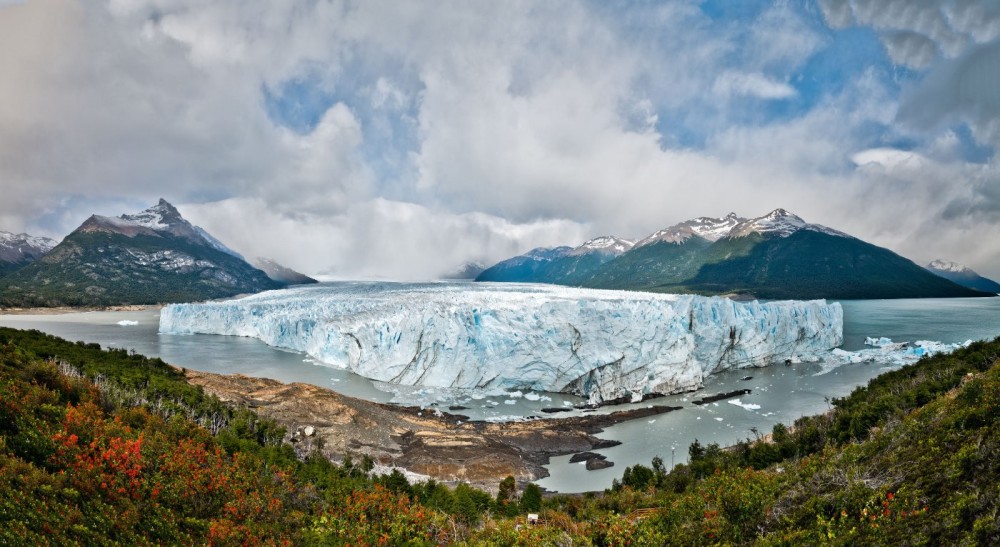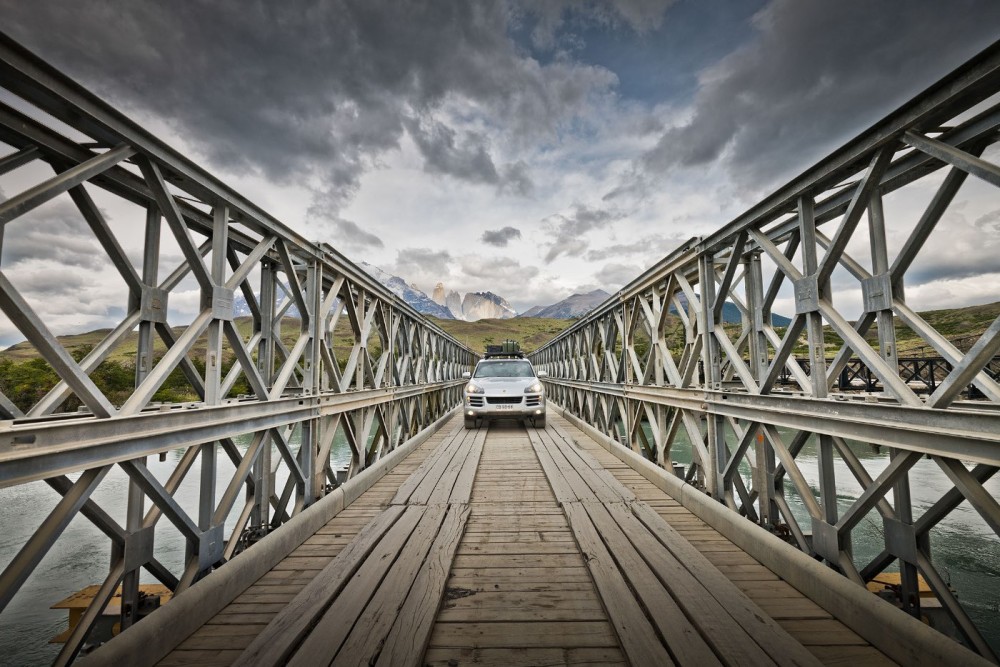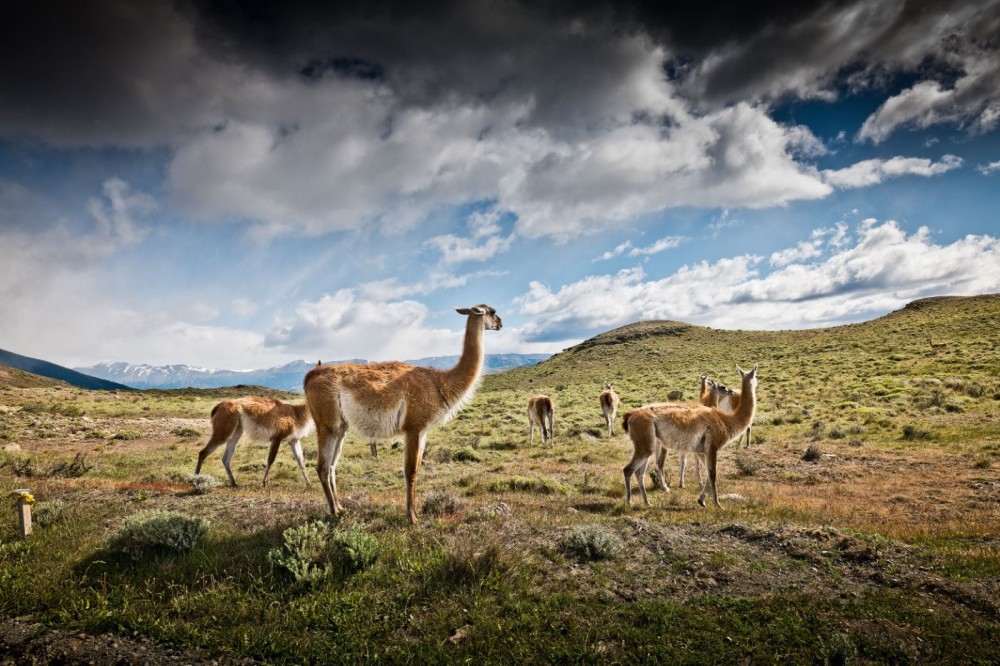We’ve come to the end, or, to be more precise, the end of the earth. Finally. But not quite: a little over 5,700 kilometers lie ahead of us at our starting point in Puerto Montt, Chile, until all that’s left is a view of the ice-gray Pacific Ocean from Tierra del Fuego to the south. Next stop: Antarctica. Sandwiched in between is Patagonia. Our drive through this wild, breathtakingly beautiful country, to the southern end of the American continent, is something like a journey into one of the last parallel universes on our planet, an increasingly unreal probing of a place where time stands still. A dream of intangible beauty. A state of permanent arrival despite being constantly on the move. A definitive end and a steadfast beginning all in one. That’s roughly how we would describe our journey through Patagonia.
We are a small bunch of traveling companions who, for a variety of reasons, have joined a project that was just a vision to begin with. A dream, an opportunity to drop off the radar, or however you wish to classify a plan to drive to the end of the world in the wilderness of Patagonia. This isn’t necessarily going to be an all-inclusive cruise with a set daily program and evening entertainment. Rather the opposite in fact. This group is going to shape the journey, its speed and direction, its rhythm and its colors. It’s not for nothing that we call ourselves “The Band”. Because that’s exactly what we are: a group of completely different characters all of whom bring something of themselves to the journey. And in the end something will have emerged that only exists because these very specific people have gelled.
The members of “The Band” find their place, getting to know each other and naturally molding themselves into a cohesive bunch on the dirt roads of Patagonia. We have philosophers and navigators, cautious souls and thrill-seekers, doubters and optimists. Some of our companions have been part of the team for a long time, regulars when CURVES goes on tour, while others are friends of the CURVES community who join us live on stage as surprise guests. In particular, two new members of the CURVES band have enriched the gig in South America: Colomba and Carlos. When Colomba laughs, even the toughest border official will drop his stern expression and may even invite you to watch football in his living room afterwards. Colomba is actually an experienced rally driver and talented actress who taught herself to play the ukulele on our trip. Almost unnoticed, she organized the perfect accommodation, found the nearest gas station and would never allow anyone to get “hangry”. We love you, “Mama”! As a passionate adventure biker and hiker, Carlos knows Patagonia like the back of his hand and demonstrated a very special instinct for which roads were worth exploring. If we road trippers could wish for something, it would be to have a Carlos plugin for the navigation system. “El Commandante” guided us safely and with infinite patience to all of these wonderful places and gave use the opportunity to learn a lot from him about the country, its nature and people. On the trip, we found out that Carlos has a pilot’s license, has broken the sound barrier several times and is a regular visitor to Antarctica. “Totally Carlos” you might say…
Of course, each and every one of the people on this trip is essentially very special. Every different perspective enriches our journey. Thus it was that we experienced a community that was precious, meaningful and invaluable on the long trek to the end of the world. Meanwhile, all around us the world of Patagonia took on the role of dramatic protagonist, calming and relativizing everything more and more with every passing kilometer, throwing us humans back on ourselves and bringing our innermost being to the fore. The extravagantly vast natural riches of Patagonia have a clear message for us: we humans are guests on this planet, nothing more. Life is a privilege, not something to be taken for granted. It’s also a good thing that we chose the right vehicles as traveling companions for the long journey: the first generation Porsche Cayenne models were simply brilliant on the brutal gravel roads and mountain passes of Patagonia, carrying us as if in a dream. They displayed an assertive energy, offering plenty of comfort and space and combining nimble agility with an impressive luggage capacity. These mighty pack-elephants are ideal for rally conditions, pushing ahead at speed if necessary and then becoming the epitome of dependability and continuity once again.
There is something else that is an intrinsic part of this journey: from our European perspective, getting to the starting point of our journey in Chile is not simply a matter of making flight connections, but in fact a profound pilgrimage. After all, even at jet speed, it takes several hours to reach the major cities of South America from the middle of Europe, and even here we still have a long distance to travel before we reach Patagonia. Arriving at the airport in Buenos Aires or Santiago de Chile, travelers find they have reached that state somewhere between lethargy and distant introspection that long-haul journeys trigger in mankind as a species. It is almost like being on a flight to Mars: you suspect that you don’t really belong here, but turning around and sneaking back home is no longer an option. You then find yourself standing in a stupor, gazing at the airline display boards, sleepwalking your way through the terminals. Your synapses are enveloped by jetlag’s fuzzy embrace as you realize that there are still several hours to wait before flying on again and before Patagonia begins. In the old days when the railway was king, this journey would have taken several days. The realization that you are far, far away from home slowly begins to seep in, coming as a blood-curdling shock or a nagging fatalism. If you feel anything even akin to happiness at the moment you realize your irreversible abandonment, then you know that you’re a dyed-in-the-wool wanderer. People like us simply hate to stand still. Sometimes you just can’t get far enough away from it all. In the end, the way home was actually one of the most difficult stages of our trip to Patagonia, because this magical and beautiful country draws in the human soul and only gives part of it back again. At the end of our trip we are still full of silent, reverent awe. No other trip has turned us inside out like this and part of us stayed behind in Patagonia forever. The bittersweet pain of wanderlust. How does it happen? How do you lose your heart to a landscape and consider the experience as a gift? – We still haven’t quite understood it. All we know is that part of us is still standing at the top of the Andes on the road to Bariloche, by the fjords of the Rio Cochrane, at the foot of the Torres del Paine or staring out over the Beagle Channel. At the end of the earth. Or is it the beginning?







